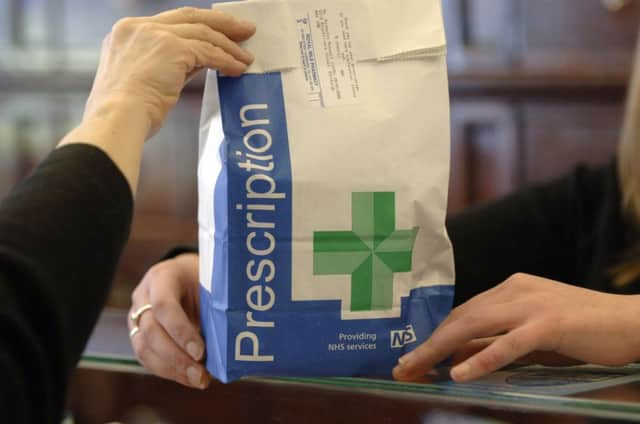NHS stakeholders can make the health budget go farther


THE last five years have brought considerable pressure on all aspects of publicly funded services. Although the NHS has been protected from some of the budget cuts, contracted services like community pharmacies, dental surgeries and general practices have had to adapt to the economic constraints. There is a responsibility for all of us connected to the NHS to make sure the resources available are utilised in the best interests of our patients.
The prescribing budget is often an area of focus when policy makers look to contain costs. In Scotland, nearly £1.4 billion is spent per year on drugs. Almost £1bn of this is in primary care. With such a significant figure there will always be areas where efficiency can be impreoved. It would, however, be wrong to view the drugs bill as simply a cost – instead it should be recognised as an investment in the long-term health and quality of life of the people of Scotland. With an ageing population it is highly likely a higher number of patients will require medication in the future. The more efficient we can be with this budget, the greater the potential benefit for those accessing the NHS.
Advertisement
Hide AdAdvertisement
Hide AdSignificant savings have already been made through an increased use of generic medicines. These are drugs no longer patent-protected, with a greater number of manufacturers therefore allowed to produce them, thus increasing marketplace competition and driving down prices. Prescribing advisers in the health board areas support GP practices to make best use of the budget by using generic medicine where possible. The community pharmacy network has augmented this saving by driving drug prices further down. This is achieved by efficient buying of medication from a range of suppliers. The result has been Scotland’s generic drug prices being some of the lowest in the Western world.
Synergistic to an efficient supply chain has been the patient care delivered by community pharmacy teams. We know that patients who are supported by their community pharmacy team are more likely to get the full benefit of their medication. The chronic medication service has supported this in every pharmacy in Scotland, delivering care planning and medication assessments. More can be achieved. The roll-out of serial prescribing, where the pharmacy is supplied with up to 48-week prescriptions by the GP, has been slow and lacked direction. The true value of a community pharmacy and general practice therapeutic partnership will only be realised once serial prescribing becomes the norm.
A lot of positive work has contributed to the drug budget being contained. Despite this, Audit Scotland estimated that around £26 million could be saved without affecting patient care. Within this, drug waste accounted for around £12m. Serial prescribing gives increased responsibility for the supply of a patient’s medication to the pharmacy. This would ensure that patients only receive medication when it is required. Serial prescribing also delivers a managed workflow for the community pharmacy team. Dispensing of prescriptions can then be planned to free up more time to deliver patient care. This is important because pharmacy team engagement with a patient around their medicines reduces waste.
Many patients now find themselves on multiple medications, often because they suffer one or more long-term conditions. This has led to a rise in what is known as polypharmacy. When a patient is treated with multiple medications, it is important to review the effectiveness of each therapy periodically. Community pharmacy expertise has not been utilised enough in this area. The community pharmacist often has a strong relationship with the patient, built up through many years of regular contact. Their knowledge should be used to make formal recommendations to the prescriber around the continued appropriateness of a patient’s medication. A polypharmacy clinic is a natural fit with the chronic medication service.
The key to efficient use of NHS resources is often the relationships between those delivering the service. General practice surgeries and community pharmacies already have long established relationships with their patients. Developing integrated therapeutic partnerships will benefit patient care significantly. Added to this the NHS will gain from better use of the resource it provides.
We all accept public service funding is not limitless. The investment made in our nation’s health through medicines or other treatments must deliver value.
If all of us who value NHS work together, Scotland’s health service can continue to deliver for patients for years to come.
• Harry McQuillan is chief executive of Community Pharmacy Scotland
SEE ALSO